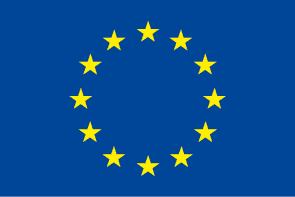
Identifying compaNies and Victims in the Exploitation phase to disRupt the financial business model of adult and child labour Trafficking (INVERT)
101101914 — INVERT
INVERT is a Project co-funded by the European Commission, Internal Security Fund under Call ISF-2022-TF1-AG-THB (Project number 101101914). The designated European Commission Project Officer is Ms. Katarina Tiger.
The Project will run for 24 months, from 1st June 2023 to 31st May 2025 and the Consortium is composed of 7 partners presented below:
– Università Cattolica del Sacro Cuore (UCSC), the Coordinator
– Procura della Repubblica presso il Tribunale di Palermo (PRP)
– Victim Support Europe AISBL (VSE)
– Országos Kriminológiai Intézet [National Institute of Criminology, Hungary] (OKRI)
– Ministero della Difesa, Comando Generale dell’Arma dei Carabinieri (CCTL)
– Osservatorio sulla Sicurezza e Difesa CBRNE (OSDIFE)
– De Federale Overheidsdienst Justitie – Le Service Public Federal Justice (FODJ)
Project INVERT aims at:
♦ Disrupting the exploitation stage of the financial flows of the criminal business model of labour trafficking of both adult and children by developing a prototype suite of two risk assessment tools (company-focused and victims-focused) to be used by prosecutor offices and Law Enforcement Agencies (LEAs) across Europe.
♦ Strengthening the international cooperation and capacity building among prosecutor offices and LEAs across Europe in the investigation and prosecution of labour trafficking of both adult and children.
The official project website: https://invert-project.eu/about-the-project/
 |
Funded by the European Union. Views and opinions expressed are however those of the author(s) only and do not necessarily reflect those of the European Union or [name of the granting authority]. Neither the European Union nor the granting authority can be held responsible for them. |

‘Corruption risk, risk of corruption?
Distinguishing criteria between petty and high-ranking corruption'
101014783 — CRITCOR
The ‘Corruption risk, risk of corruption? Distinguishing criteria between petty and high-ranking corruption’ (101014783 — CRITCOR) project was funded by the European Union’s HERCULE III programme.” The CRICTOR will be implemented between 1 January 2021 and 31 March 2022.
Summary
The CRITCOR project was implemented under the European Union's HERCULE III programme between 1 January 2021 and 30 April 2022. The project, led by the National Institute of Criminology, brought together experts from Portugal, Germany, Italy, the Netherlands, the UK, Poland, the Czech Republic and Romania to support and facilitate the successful implementation of the fifteen-month collaboration. Our aim was to gather and share knowledge on corruption issues in such a way that both theoretical and practical experts can use the information effectively, and to make the knowledge and integrated analysis of domestic and foreign "good practices" available to professionals, who can provide meaningful assistance in the effective prosecution, detection and identification of the appropriate criminal law tools for corruption offences.
In order to implement the project successfully, a four-pillar programme was set up, in which workshops, training sessions and conferences took place; a project website was created, a case study booklet was compiled in English with the involvement of the participating countries, and a training booklet based on the international exchange of experience and a toolkit (Guidebook) were published in Hungarian and English.
The final conference, which took place in 2022 with the participation of more than a hundred national and international theoreticians and practitioners, summarised the results of the project, presented different international perspectives on corruption and tools to protect EU financial interests, and discussed the legal and criminological perspectives of corruption. The participants noted that the issue of corruption is very complex, and although in some respects it varies from country to country, the main characteristics of the phenomenon have many common features, and therefore it is worth analysing it at international level. The indicators and distinctions between lower and higher levels of corruption are far from clear. As the legislation varies from country to country, it is extremely difficult to find completely common ground, because the language of law and criminology is not identical. While law thinks in terms of specific points of law and predefined sanctions, criminology as a science always defines problems as "phenomena".
Our publications cover the theoretical aspects of corruption from a domestic and international perspective. The training material focuses on potential problems and dilemmas in the area of corruption and its investigation and prosecution. The toolkit can be useful for the police and prosecutors in Hungary - and abroad - to improve the effectiveness of their corruption investigations. This systematic overview gives professionals a sound knowledge of the correct sequence of investigative steps.
Both the oral programmes and the written material were widely publicised, reaching around 380 people directly and many more indirectly.
PARTICIPANTS
EVENTS
Workshop 1 – Kick-off meeting, 22–23 March 2021 (online)
Distinguishing criteria between petty and high-ranking corruption: Expert evaluation
Abstract, Presentations, Agenda »
Workshop 2 – 21–22 June 2021 (online)
Distinguishing criteria between petty and high-ranking corruption: Preliminary results
Abstract, Presentations, Agenda »
Training – 22–23 November 2021 (online)
Detection, Prosecution, and Judicial Practice of Corruption Crimes
Abstract, Presentations, Agenda »
Final Conference – 21–22 March 2022 (online)
Distinguishing criteria between petty and high-ranking corruption: Final results
Abstract, Presentations, Agenda »
PUBLICATIONS
Studies »
Training Material »
Toolkit »
RELATED ANALYSES, PRESENTATIONS
József Kó: Corruption offences and their perpetrators in Hungary
Results of the second analysis. Summary
Éva Inzelt: Distinguishing criteria between petty and high-ranking corruption:
Preliminary results I (GRECO)
Krisztina Farkas: Distinguishing criteria between petty and high-ranking corruption:
Preliminary results II (GRECO)
ARCHIVES – COMPLETED PROJECTS
◊ Tackle Insecurity in Marginalized Areas (MARGIN) »
◊ Balkan Criminology Network »
◊ Political motivated crime in the light of current migration flows (POMIGRA) »